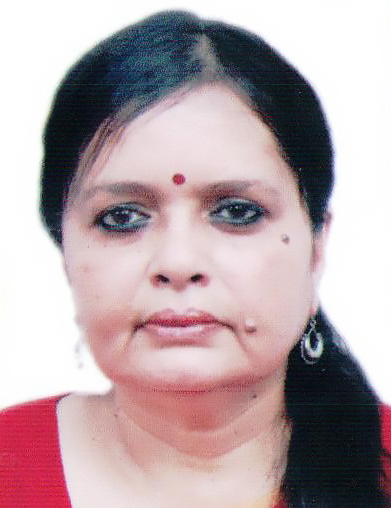Political legacies are problematic to inherit, sustain and fulfil. The Congress has partially frittered away the redoubtable endowment bestowed on the Grand Old Party (GOP) by its founding fathers and mothers. The Socialists have disintegrated into so many splinters that it’s hard to assess which of the left-over entities remembers the original principles of the Socialist Party of India and even the names of its founders, Jayaprakash Narayan, Basawon Singh (Sinha), Acharya Narendra Dev and JB Kripalani. It’s not as though the latter day embodiments have become unrecognisable clones of the originals. They retain features but the course which power politics, of which they are an integral party, has taken distorted the founding ideals and detracted from the idealism that underpinned the structures.
On June 22, when the Rashtra Manch, that was started by Yashwant Sinha, a former BJP leader who has since joined the Trinamool Congress Party (TMC), mobilised the Opposition and met at the residence of Sharad Pawar in Delhi, the capital’s commentariat was quick to draw comparisons with the Janata Party of 1977 and the Janata Dal of 1988, to date the most significant and substantive Opposition regroupings against the ruling orders of the day. Sinha reportedly invited the representatives from the non-BJP spectrum but in a curious and inexplicable twist, reached out selectively to five Congress members, of who three were part of the G-23 cabal that had raised questions over the leadership of the Gandhis some months ago. Sonia and Rahul Gandhi and Priyanka Gandhi Vadra were not asked and neither were their perceived “loyalists”.
Sinha’s convenorship would have caused a degree of scepticism because he spent the better part of his political career in the BJP and soared to the level in Atal Bihari Vajpayee’s regime that very few lateral entrants ever reached. Sinha came to the BJP from the Samajwadi Janata Party and espoused a political philosophy that combined socialism and “swadeshi” economics with liberalisation and reforms. Important regional parties such as the Dravida Munnetra Kazhagam (DMK), the Rashtriya Janata Dal (RJD) and the Bahujan Samaj Party (BSP) went missing and indeed the presence of leaders was minimal. Apart from Omar Abdullah (National Conference), Jayant Chaudhary (Rashtriya Lok Dal) and of course Pawar, the host, the Samajwadi Party (SP) and the Left Front despatched their emissaries.
What does the half-hearted endeavour indicate? Firstly, that although some of the provincial parties might have started out as Congress opponents, notably the DMK, the NC and the RJD, they have since made their peace with the GOP and realised that if the Opposition needs a sheet anchor, it has to be the Congress, even given the indifferent state of the party. Reports have surfaced periodically of Pawar donning the mantle of a “Third Front” leader but his NCP colleague, Majeed Memom, made it plain that his boss had no intention of putting together an anti-BJP coalition and neither had he called the meeting.
Secondly, the DMK and the RJD have the Congress as allies, so can they logically be expected to shake off the partnership and join an inchoate front?
Thirdly, some of the non-BJP parties such as the DMK, the RJD and the SP are today more strongly placed in their regions than the NCP that at best is a distant second to the Shiv Sena in the Maharashtra coalition government.
Lastly, a latent mood prevailed against Indira Gandhi and the Emergency in large parts of India by the time she called for elections in 1977. The Opposition, birthed by Jayaprakash Narayan’s movement against the Emergency, however much of a ragbag it was, successfully tapped into the anti-Indira sentiments and put up the kind of resistance that upstaged her.
Likewise, by the time the Janata Dal coalesced into a front led by VP Singh in 1988, the country had, by and large, turned against the then Prime Minister, Rajiv Gandhi. He was dogged by corruption charges, his close advisors had let him down and he fumbled badly on the “Hindutva” issue that was manifest in the high-voltage Vishwa Hindu Parishad (VHP) campaign to “liberate” Ayodhya’s Ram temple. The Janata Dal was forced to co-opt the BJP as an ally with the Left Front. The unnatural alliance did not last long. Like in 1980, when Vajpayee and LK Advani pulled out of the Janata Party government after they refused to forsake their RSS memberships, in 1990, the VP Singh government fell, following its opposition to the temple “movement”.
There was another significant RSS linkage to the Opposition movements. In 1975 and 1989, the Sangh provided the ballast to steady the Opposition’s ship. It’s hard to imagine that without the Sangh’s participation and support, the amorphous alliance of Socialist factions, provincial parties and Congress renegades could have shaped into a tenable Front to fight and dislodge the Congress. There is no such organisation to hold aloft a front today.
When Prashant Kishor, a political strategist who advised Mamata Banerjee and MK Stalin before the recent assembly elections, ruled out the prospect of a “third, fourth front” challenging the BJP and Prime Minister Narendra Modi, the congregation at Pawar’s residence lost some salience. Kishor held two sessions with Pawar before the meeting. Unless the Congress gets its act together and elects a president to lead the party, the emergence of a front seems in doubt. The Congress lacks the fire in the belly and the resources to fight the BJP.













